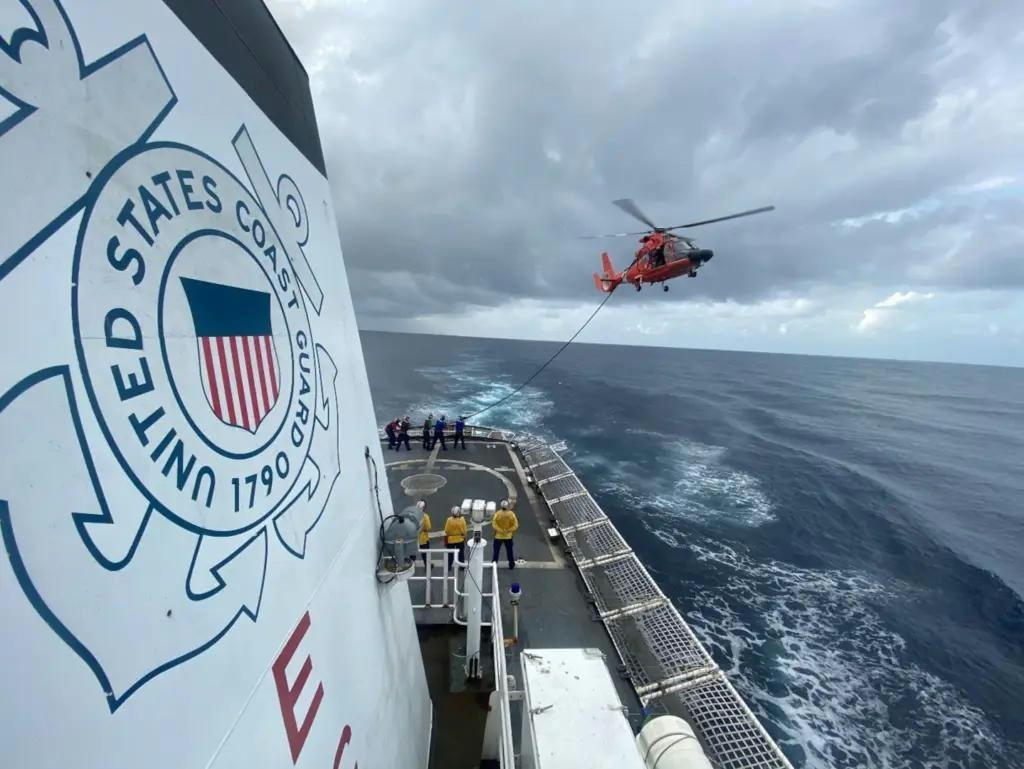AeroGenie — Your Intelligent Copilot.
Trending
Categories
Coast Guard Awards Contracts for Aircraft Engines and Radar Ahead of Fleet Expansion

Coast Guard Awards Contracts for Aircraft Engines and Radar Ahead of Fleet Expansion
The U.S. Coast Guard has recently awarded significant contracts for aircraft engines and radar systems, marking a critical step in its ongoing initiative to expand and modernize its aviation fleet. These acquisitions are designed to enhance mission capabilities and expedite the delivery of new aircraft, reinforcing the service’s operational readiness.
Engine and Radar Contracts
On September 8, the Coast Guard placed a $14.3 million order for 13 General Electric T700 engines to support its MH-60 medium-range recovery helicopter fleet. This procurement addresses the need for critical long lead-time components essential to growing the MH-60 fleet and facilitating the transition of several air stations away from the aging MH-65E helicopters. The MH-60 platform offers advanced range, speed, payload capacity, and sensor capabilities, making it a versatile asset across all 11 Coast Guard missions, including search and rescue and law enforcement. The shift from the MH-65E is driven by increasing supportability challenges due to a diminishing supply base for the out-of-production aircraft.
Ten days after the engine contract, the Coast Guard awarded a $13.9 million contract to L3 Harris Technologies Inc. for three AN/APY-11 multi-mode radar systems. These radars will be installed on future HC-130J long-range surveillance aircraft as part of the Minotaur missionization process. The AN/APY-11 radar system, selected for its multi-mode capabilities, is expected to significantly enhance operational effectiveness by enabling the collection and correlation of sensor and track data. This capability supports a range of missions, including drug interdiction, search and rescue, and border security. The HC-130J fleet remains a vital component of the Department of Homeland Security’s airlift and logistical support during both national events and routine operations.
Funding and Strategic Importance
These acquisitions are funded through the One Big Beautiful Bill Act (OBBBA), which allocates over $3.3 billion to expand the Coast Guard’s HC-130J and MH-60 fleets. Approximately $2.3 billion is dedicated to producing and fielding new MH-60 helicopters and simulators, while around $1.1 billion supports the production and missionization of six additional HC-130J aircraft, including spare parts and the service’s first HC-130J simulator.
Despite these advancements, the Coast Guard faces ongoing challenges in securing reliable and cost-effective aircraft engines and radar systems amid global supply chain disruptions and heightened competition from both defense and commercial sectors. Market analysts have expressed concerns over rising costs associated with procuring advanced technologies. Furthermore, other maritime agencies are pursuing similar high-speed engines and radar systems, intensifying competition for suppliers such as Everllence. The recent record high-speed order from the Indian Coast Guard highlights the growing strategic importance and global demand for advanced maritime aviation technology.
As the Coast Guard advances its fleet expansion, these investments are critical to maintaining operational readiness, securing U.S. maritime borders, and effectively responding to emerging threats and crises.

Emirates Unveils Cabin Design for New Boeing 777X

Eighteen Years On, the Airbus A380 Remains Central to a $34 Billion Airline

How a boom in luxury airline seats is slowing down jet deliveries

Navitaire Outage Attributed to Planned Maintenance

DigiYatra Debuts Outside Aviation at India AI Impact Summit

Vietnam Orders Strengthen Boeing’s Commercial Outlook

Airbus Signals Uncertainty Over Future A400M Orders

JobsOhio Awards $2 Million Grant to Hartzell Propeller for Innovation Center

Collins Aerospace Tests Sidekick Autonomy Software on YFQ-42A for U.S. Air Force CCA Program

How the Airbus A350-1000 Compares to the Boeing 777
